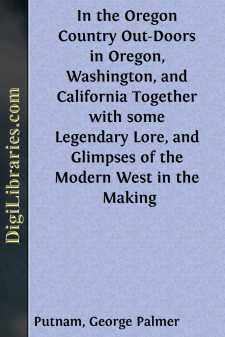Categories
- Antiques & Collectibles 13
- Architecture 36
- Art 48
- Bibles 22
- Biography & Autobiography 815
- Body, Mind & Spirit 144
- Business & Economics 28
- Children's Books 18
- Children's Fiction 14
- Computers 4
- Cooking 94
- Crafts & Hobbies 4
- Drama 346
- Education 58
- Family & Relationships 59
- Fiction 11834
- Games 19
- Gardening 17
- Health & Fitness 34
- History 1378
- House & Home 1
- Humor 147
- Juvenile Fiction 1873
- Juvenile Nonfiction 202
- Language Arts & Disciplines 89
- Law 16
- Literary Collections 686
- Literary Criticism 179
- Mathematics 13
- Medical 41
- Music 40
- Nature 179
- Non-Classifiable 1768
- Performing Arts 7
- Periodicals 1453
- Philosophy 65
- Photography 2
- Poetry 896
- Political Science 203
- Psychology 44
- Reference 154
- Religion 515
- Science 126
- Self-Help 85
- Social Science 82
- Sports & Recreation 34
- Study Aids 3
- Technology & Engineering 59
- Transportation 23
- Travel 463
- True Crime 29
Our website is made possible by displaying online advertisements to our visitors.
Please consider supporting us by disabling your ad blocker.
In the Oregon Country Out-Doors in Oregon, Washington, and California Together with some Legendary Lore, and Glimpses of the Modern West in the Making
Description:
Excerpt
INTRODUCTION
HEN one has lived in Oregon for forty-three years, and when one's enthusiasm for his home increases year after year, naturally all that is said of that home is of the most vital interest. Especially is it acceptable if it is the outgrowth of a similar enthusiasm, and if it is well said.
For a considerable span of time I have been reading what others have written about the Pacific Coast. In the general western literature, it has seemed to me, Oregon has never received its merited share of consideration. Just now, with the Expositions in California attracting a worldwide interest westward, and with the Panama Canal giving our development a new impetus, it is especially appropriate that Oregon receive added literary attention. And it is reasonable to suppose that the stranger within our gates will find interest in such literature, provided it be of the right sort, just as Oregonians must welcome a sound addition to the State's bibliography, written by an Oregonian.
So, because I like the spirit of the following pages, admire the method of their presentation, and deeply desire to promote the success of all that will tend toward a larger appreciation of Oregon's possibilities, I recommend this book to the consideration of dwellers on the Pacific Coast, and those who desire to form acquaintance with the land it concerns.
Governor of Oregon.
Salem, Oregon,
January 20th, 1915.
FTEN enough a preface is an outgrowth of disguised pretentiousness or insincere humility. Presumably it is an apology for the authorship, or at least an explanation of the purpose of the pages it introduces.
But no one is compelled to write a book; and, in truth, publishers habitually exert a contrary influence. It is a fair supposition, therefore, when a book is produced, that the author has some good reason for his act, whether or not the book itself proves to be of service.
Among many plausible apologies for authorship, the most reasonable is, it seems to me, a genuine enthusiasm for the subject at hand. If one loves that with which the book has to do the desire to share the possession with readers approaches altruism. In this case let us hope that the enthusiasm, which is real, and the virtue, which is implied, will sufficiently cloak the many faults of these little sketches, whose mission it is to convey something of the spirit of the out-of-door land they picture—a land loved by those who know it, and a land of limitless welcome for the stranger who will knock at its gates.
The Oregon Country, with which these chapters are chiefly concerned, has been the goal of expeditioning for a century and a quarter. First came Captain Robert Gray in 1792, by sea. Meriwether Lewis and William Clark, twelve years later, tracked 'cross country from the Missouri to the mouth of the Columbia. In 1810, the Astor expedition, under Wilson and Hunt, succeeded, after hardships that materially reduced the party, in making its way from St. Louis to the Columbia and down the river to the mouth, where was founded the town of Astoria. Finally, after a half-century of horse-and-wagon pioneering, the first railroads spanned the continent in 1869. But the Union Pacific and Central Pacific were more the concern of California than of Oregon, for the Northwest had no iron trail to link it with the parent East until in 1883 the Northern Pacific Railway, under the leadership of Henry Villard, reached Portland.
So Oregon was discovered by sea and land, and finally, as highways of steel replaced the dusty trails of the emigrants, she has come into her own. From within and without she has builded, and what she has done for her sons, and offers to her settlers, has established a place for her in the respectful attention of the world.
Now, in the year nineteen hundred and fifteen, a new era is dawning for Oregon and for all our Western Coast, through fresh enterprise, this time again by sea. The waters of the Atlantic and Pacific have been joined at Panama, our continental coast line, to all intents and purposes, being made continuous, and the two Portlands, of Oregon and Maine, become maritime neighbors....


